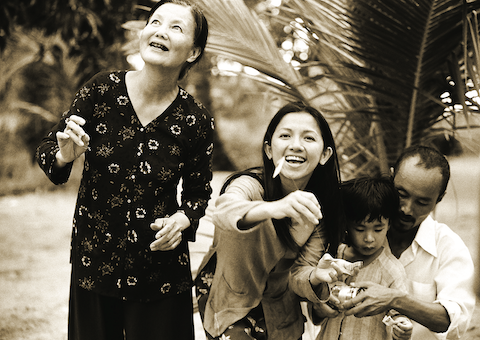
Journey from the Fall (2006). Images courtesy of Hàm Trần.
Our guest writer is Damjan Rakonjac, Ph.D. candidate in Musicology and graduate student in the UCLA Department of European Languages and Transcultural Studies.
Journey from the Fall screens in 35mm at the Billy Wilder Theater at the Hammer Museum on October 22, 2022 at 7:30 p.m. Guest speakers: director Hàm Trần, composer Christopher Wong. Register for free.
Journey from the Fall (2006) is a highly personal project for Hàm Trần, who co-wrote, directed, edited and co-produced the film. Yet at the same it is a work deeply rooted in community. Trần’s upbringing in Little Saigon, Southern California’s celebrated Vietnamese American enclave, unmistakably informs this grippingly representational work, bearing witness to collective problems that shaped the very formation of this community in the immediate aftermath of the Vietnam War. Trần’s willingness to pose uneasy questions about the preservation of memory in the face of the collective trauma suffered by the “boat people” generation, both in Vietnam and in the U.S., goes conspicuously against the grain of nearly every other film made about the Vietnamese American experience until then. In this way, the film’s production mirrors the plot because it encourages people to speak out about the past. Nevertheless, the film is a far cry from being a simple-minded narrative of collective affirmation that brushes aside ongoing questions.
Finding no filmic precedents to draw from to help him adapt this difficult history for the screen, Trần gathered historical material for the film directly from those who experienced the journey, conducting interviews with hundreds of individual witnesses. By addressing a range of personal experience in this way, Trần was able to capture trenchant divisions within the global Vietnamese community itself, divisions that films all too often ignore for the sake of singular, nation-affirming narratives. Unlike most films made about the war from either the U.S. or the Vietnamese side, Journey from the Fall treats the Vietnam War not as a contest of nations but primarily as an internal Vietnamese conflict that migrates across the Pacific after the fall of Saigon in 1975. Mapping this shifting geography, the story is cut in half by the trauma of forced migration, reflected in the film’s division into two distinct parts, and echoed in the title itself: the first part set in Vietnam after “the fall” (of Saigon) and the second part set in Southern California, following the “journey.” The two distinct parts are bridged through powerful moments of recollection and longing, often activated by Christopher Wong’s evocative musical score, which is a welcome humanizing source of continuity for this heart-rending story of a family torn asunder by historical circumstance.
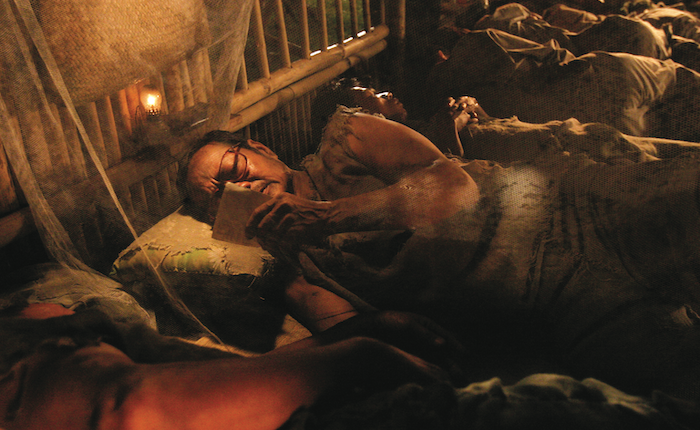
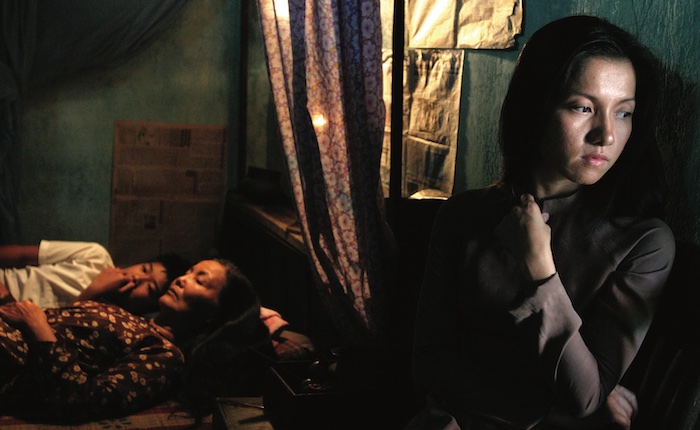
Moreover, there is serendipity beyond the screen in the fact that the long journey that frames the filmic narrative is echoed in the film’s own trajectory. The original 35mm negative of Journey from the Fall had long been considered lost, following the film’s release at the Bangkok International Film Festival in 2006. Thanks to the tremendous efforts of the Thai Film Archive at the request of the UCLA Film & Television Archive, this missing element has only recently been rediscovered in Thailand and will be transferred to UCLA for potential restoration, reflecting the same cross-Pacific journey following a long absence that the film offers up as its plot, as well as connecting to Hàm Trần’s own alma mater, UCLA.
Although it received considerable support from the Vietnamese American community, as well as being an official selection at Sundance, Journey from the Fall also drew a fair amount of notoriety in Vietnam, doubtless due to its raw depiction of the infamous post-war re-education camps, a sensitive topic to this day. Since then, however, Trần has been successful as a filmmaker living and working in Vietnam, hinting not only at the shifting nature of ideology in Vietnam since the advent of its “Renovation Policy” (Đổi Mới) in the late 1980s, defined by increasing openness to global capital, but also the shifting nature of Vietnamese identity in the 21st century. Trần’s unflinching depiction of human migration and the human repercussions of war has only grown in relevance since its release a decade and a half ago.
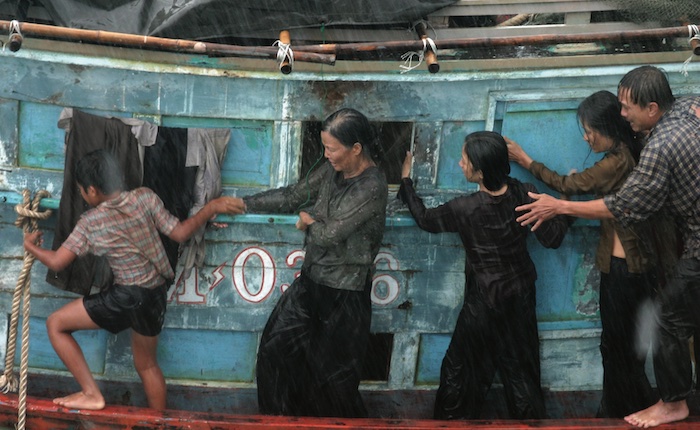
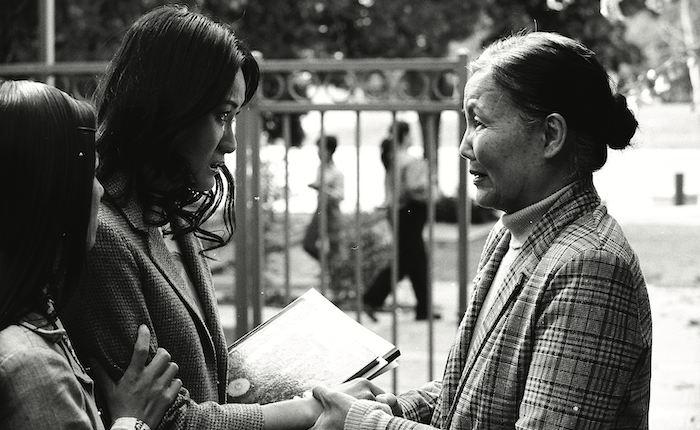
On October 22, 2022, Journey from the Fall will receive a special screening at the the Billy Wilder Theater at the Hammer Museum as part of Hear + Việt + Film, a Symposium on Music in Trans-Vietnamese Film, organized by the UCLA Center for Musical Humanities, in collaboration with the UCLA Film & Television Archive and the Sundance Institute. A Q&A with director Hàm Trần and composer Christopher Wong will follow the screening. Hear + Việt + Film will bring together scholars, filmmakers and composers to the UCLA campus for a critical reassessment of music and sound in Vietnamese film. Featuring lecture panels, film screenings and moderated discussions, the event will bridge transnational as well as transdisciplinary perspectives on this global medium. It will also raise public awareness of “trans-Vietnamese” film as a site of translation that mediates between Vietnamese and diasporic contexts, a project that involves ongoing negotiations between languages, histories and genres.
By tracing the complex entanglements between local and global contexts through the story of one Vietnamese family’s migration, and by using music as a vehicle to connect these complex threads, Journey from the Fall weaves together many of the key themes of the symposium, providing a critical focal point for discussion. Finally, the film’s own journey, from its community-rooted production and reception to its recent dramatic recovery and forthcoming journey to UCLA suggests further resonances with ongoing off-screen realities under consideration at Hear + Việt + Film.
< Back to the Archive Blog






 Mobile Navigation
Mobile Navigation

